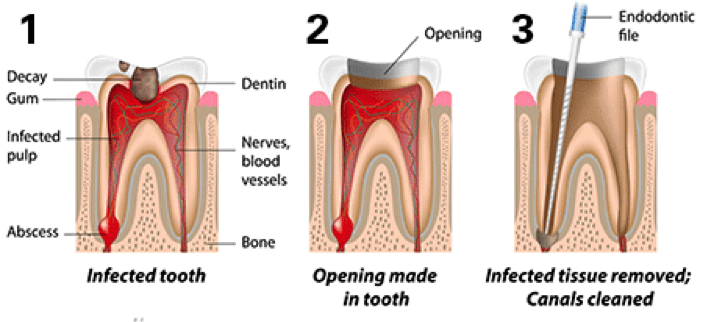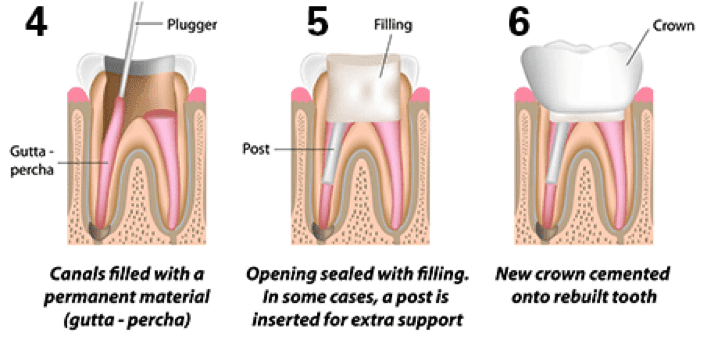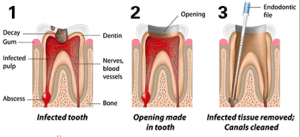In the past, if you had a tooth with an infected pulp (nerve), you would most likely lose that tooth. Today utilising a dental procedure called a root canal treatment a suitably trained dentist can save the tooth.
What is a root canal treatment?
Inside the tooth is a hollow center containing ‘pulp’.The Pulp is a sensitive tissue made up of blood vessels and nerves this provides oxygen, nutrients and feeling to the tooth.
The pulp is found in center of the tooth and the space where the pulp sits in the root is called the root canal.
Root canal treatment is a dental procedure that replaces damaged or infected pulp in the tooth’s root canal, with a filling.
Why might I need a root canal treatment?
If you have damaged or infected pulp in one or more of the roots of your teeth, or an abscess has developed, you may need a root canal treatment. This damage or infection may have been caused by untreated dental decay, decay beneath a filling, tooth damage, tooth grinding (bruxism) or gum disease.
What should I expect with root canal treatment?
This procedure is usually completed over 2-3 visits.
- The infected tooth.
- Your Dentist will make an opening in the top of the tooth.
- The diseased pulp and bacteria are flushed out with disinfectant and the root canals are cleaned with special instruments.
- The pulp chamber and root canals are filled and sealed.
- The tooth opening is restored with a filling.
- After a root canal treatment, a tooth becomes brittle. It can be strengthened (to stop it from splitting while eating) with a cap or crown.
What are the alternatives to a root canal treatment?
- Remove the tooth – Removing the tooth will leave a gap that may need to be replaced by an artificial tooth (Implant).
- Leave the tooth untreated – If left untreated an infection may occur causing toothache and can spread to the jaw. Pus can build up and cause pain. Cysts may also develop and will require further treatment.




